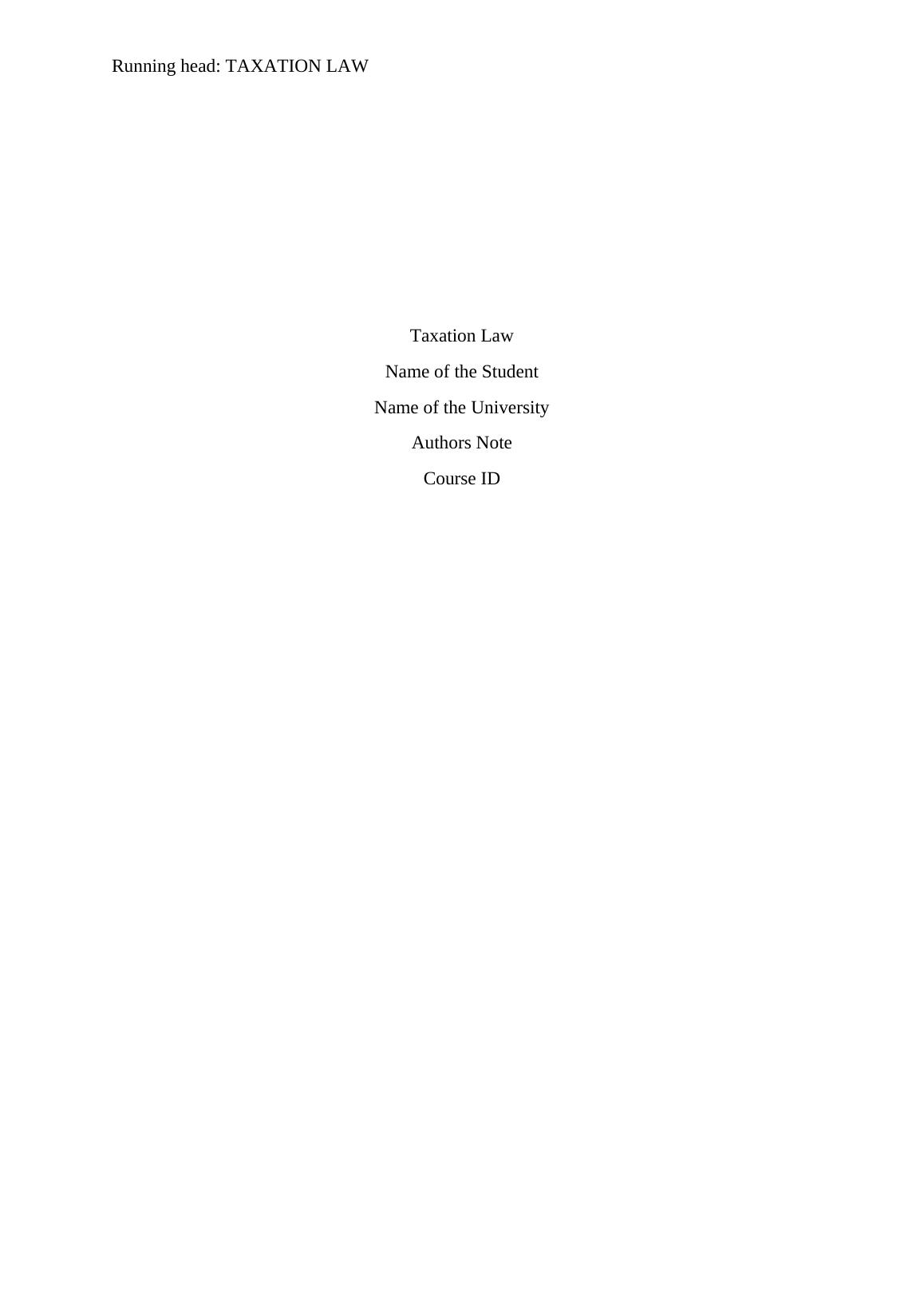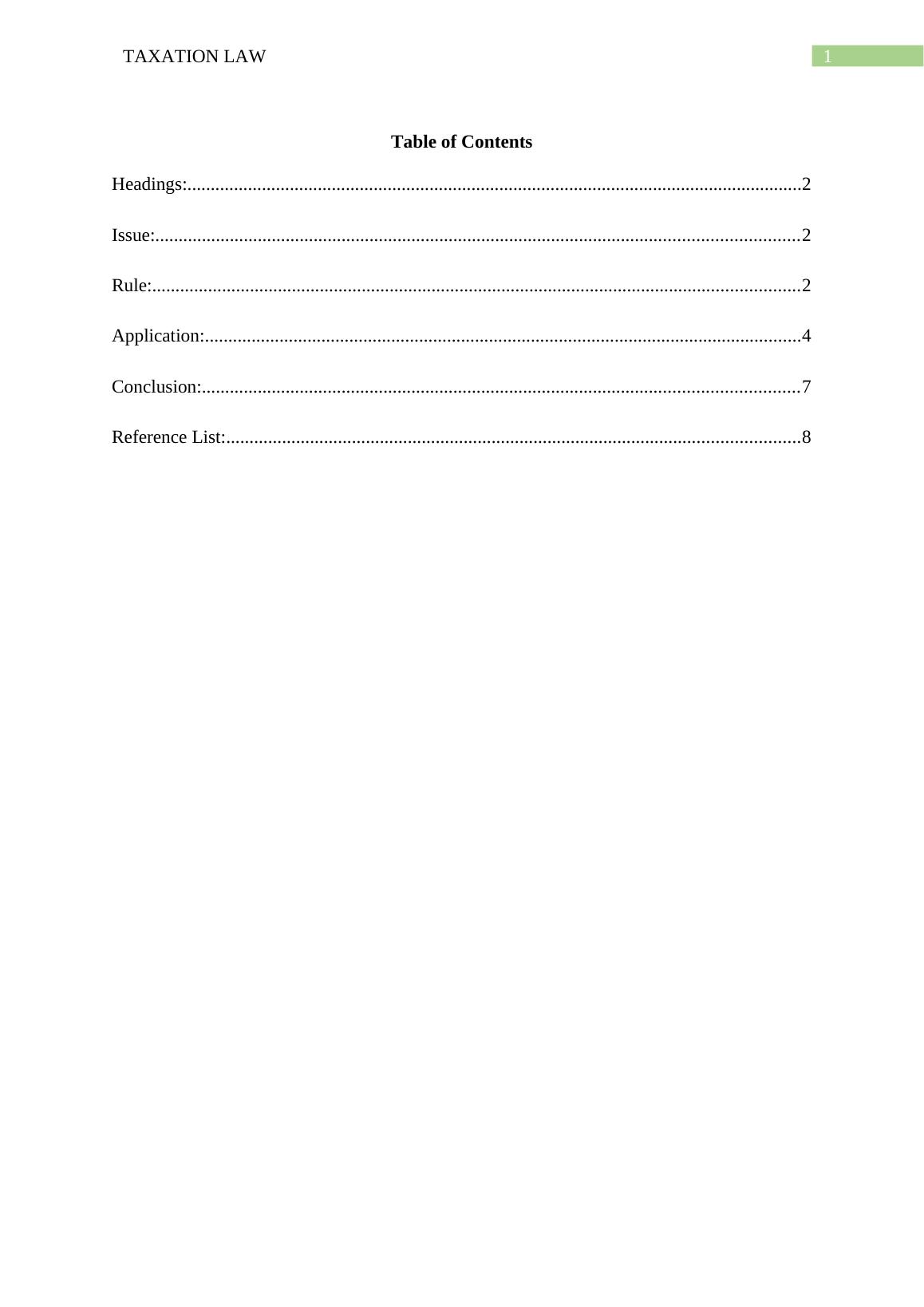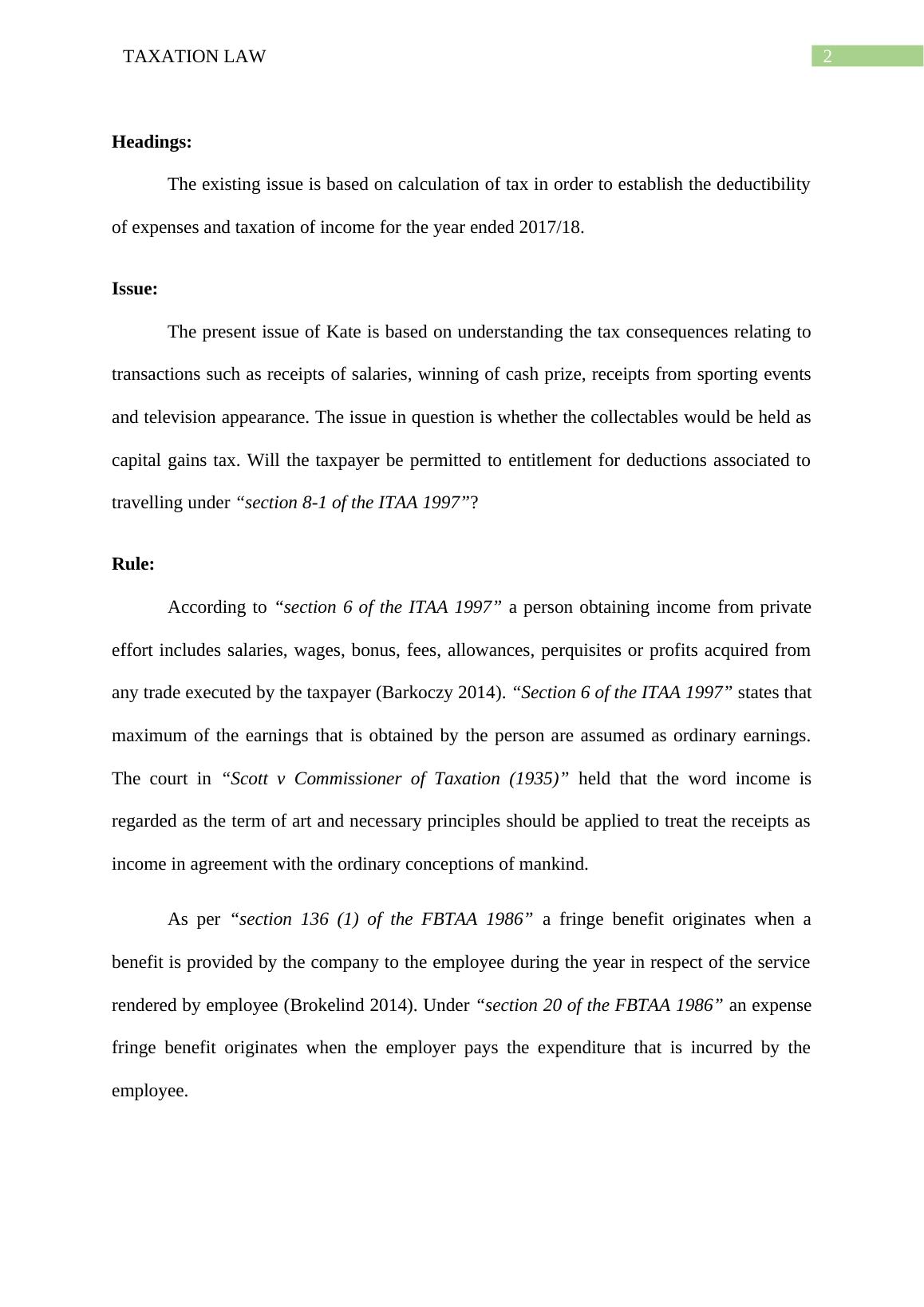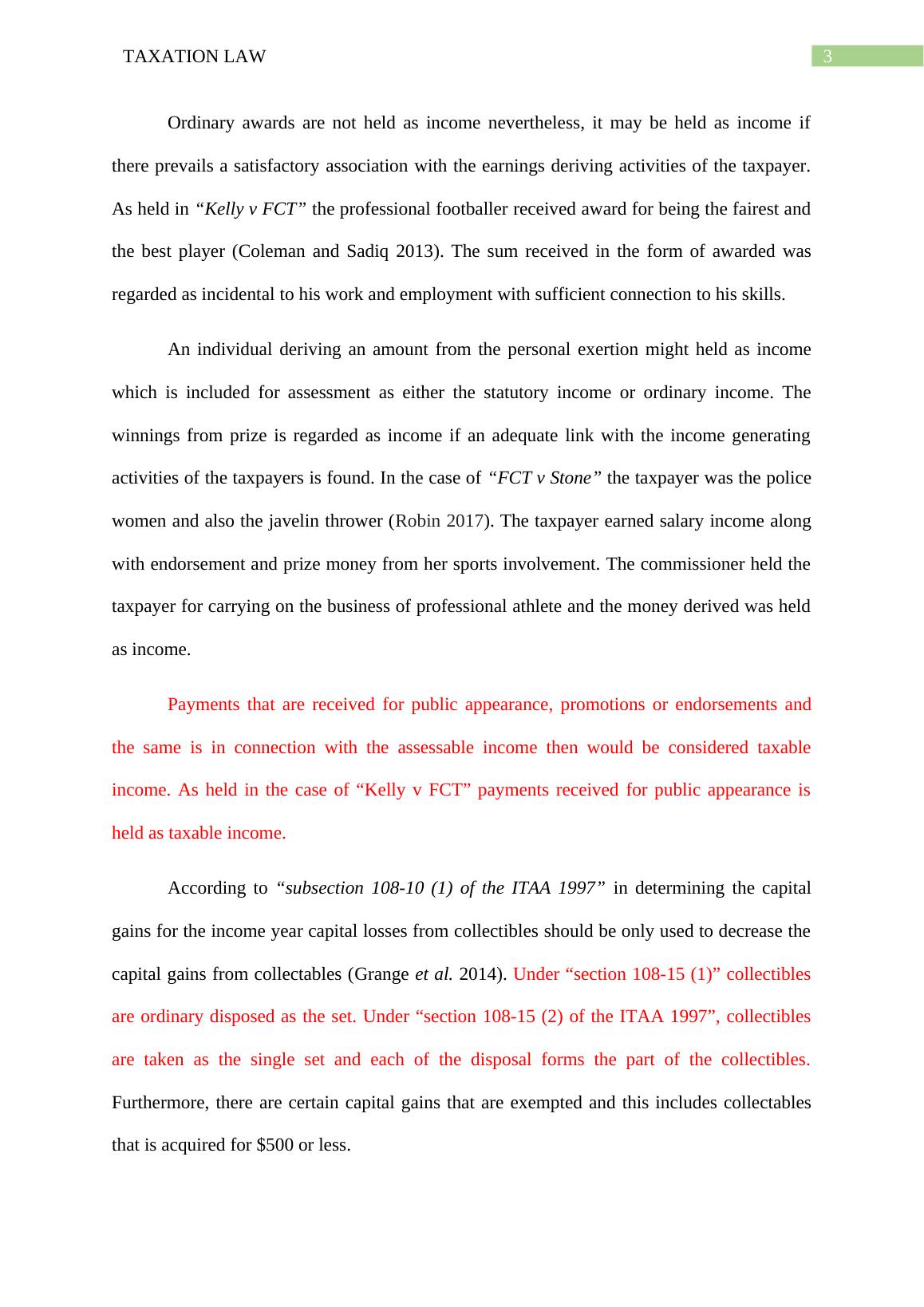Taxation Law Application - PDF
Added on 2021-05-31
11 Pages2169 Words52 Views
Running head: TAXATION LAWTaxation LawName of the StudentName of the UniversityAuthors NoteCourse ID

TAXATION LAW1Table of ContentsHeadings:....................................................................................................................................2Issue:..........................................................................................................................................2Rule:...........................................................................................................................................2Application:................................................................................................................................4Conclusion:................................................................................................................................7Reference List:...........................................................................................................................8

TAXATION LAW2Headings: The existing issue is based on calculation of tax in order to establish the deductibilityof expenses and taxation of income for the year ended 2017/18. Issue: The present issue of Kate is based on understanding the tax consequences relating totransactions such as receipts of salaries, winning of cash prize, receipts from sporting eventsand television appearance. The issue in question is whether the collectables would be held ascapital gains tax. Will the taxpayer be permitted to entitlement for deductions associated totravelling under “section 8-1 of the ITAA 1997”?Rule: According to “section 6 of the ITAA 1997” a person obtaining income from privateeffort includes salaries, wages, bonus, fees, allowances, perquisites or profits acquired fromany trade executed by the taxpayer (Barkoczy 2014). “Section 6 of the ITAA 1997” states thatmaximum of the earnings that is obtained by the person are assumed as ordinary earnings.The court in “Scott v Commissioner of Taxation (1935)” held that the word income isregarded as the term of art and necessary principles should be applied to treat the receipts asincome in agreement with the ordinary conceptions of mankind. As per “section 136 (1) of the FBTAA 1986” a fringe benefit originates when abenefit is provided by the company to the employee during the year in respect of the servicerendered by employee (Brokelind 2014). Under “section 20 of the FBTAA 1986” an expensefringe benefit originates when the employer pays the expenditure that is incurred by theemployee.

TAXATION LAW3Ordinary awards are not held as income nevertheless, it may be held as income ifthere prevails a satisfactory association with the earnings deriving activities of the taxpayer.As held in “Kelly v FCT” the professional footballer received award for being the fairest andthe best player (Coleman and Sadiq 2013). The sum received in the form of awarded wasregarded as incidental to his work and employment with sufficient connection to his skills. An individual deriving an amount from the personal exertion might held as incomewhich is included for assessment as either the statutory income or ordinary income. Thewinnings from prize is regarded as income if an adequate link with the income generatingactivities of the taxpayers is found. In the case of “FCT v Stone” the taxpayer was the policewomen and also the javelin thrower (Robin 2017). The taxpayer earned salary income alongwith endorsement and prize money from her sports involvement. The commissioner held thetaxpayer for carrying on the business of professional athlete and the money derived was heldas income. Payments that are received for public appearance, promotions or endorsements andthe same is in connection with the assessable income then would be considered taxableincome. As held in the case of “Kelly v FCT” payments received for public appearance isheld as taxable income. According to “subsection 108-10 (1) of the ITAA 1997” in determining the capitalgains for the income year capital losses from collectibles should be only used to decrease thecapital gains from collectables (Grange et al. 2014). Under “section 108-15 (1)” collectiblesare ordinary disposed as the set. Under “section 108-15 (2) of the ITAA 1997”, collectiblesare taken as the single set and each of the disposal forms the part of the collectibles.Furthermore, there are certain capital gains that are exempted and this includes collectablesthat is acquired for $500 or less.

End of preview
Want to access all the pages? Upload your documents or become a member.
Related Documents
Taxation Law: Tax Determination of Kate for Income Year 2017-18lg...
|11
|2251
|162
Taxation Law Application - Assignmentlg...
|10
|1592
|107
Determining Taxable Income and Allowable Deductions under Taxation Lawlg...
|12
|2334
|127
Taxation Law: Understanding Tax Calculations and Deductions for Katelg...
|9
|1977
|303
Taxation Lawlg...
|13
|3165
|53
Taxation Law: Income Tax Computation and Deductibility of Expenseslg...
|11
|2161
|202
